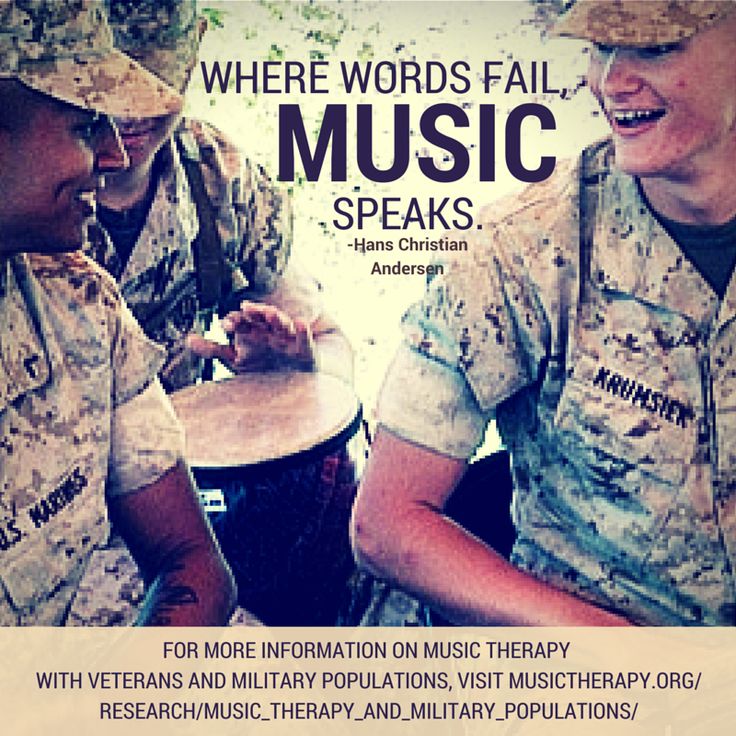On this Veterans Day, celebrating our veterans is a bit overshadowed by the election that occurred this past week, and understandably so. On the blog today I wanted to bring the focus back to our veterans, because caring for veterans has played a primary role in the dawn of modern music therapy and is still to this day a major population served by music therapists across the country.
From AMTA.org:
The idea of music as a healing influence which could affect health and behavior is as least as old as the writings of Aristotle and Plato. The 20th century profession formally began after World War I and World War II when community musicians of all types, both amateur and professional, went to Veterans hospitals around the country to play for the thousands of veterans suffering both physical and emotional trauma from the wars. The patients’ notable physical and emotional responses to music led the doctors and nurses to request the hiring of musicians by the hospitals. It was soon evident that the hospital musicians needed some prior training before entering the facility and so the demand grew for a college curriculum.
Music therapy has been clinically found to be an effective treatment for many post-war ailments: including PTSD, TBI recovery, and physical recovery. Music therapy is able to reduce pain, reduce anxiety, and provide “non-intimidating access to traumatic memories, facilitating an outlet for rage and regaining a sense of self-control” (Drumming through trauma: Music therapy with post-traumatic soldiers).
We owe our veterans so much, including top-of-the-line health care when they return home. The most cutting-edge hospitals proudly provide music therapy for pain and anxiety management, TBI recovery, PTSD therapy, and more.
Happy Veterans Day!

